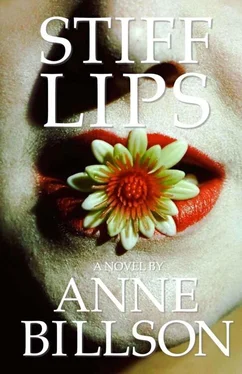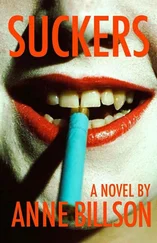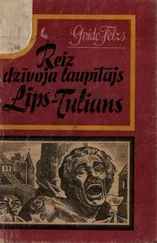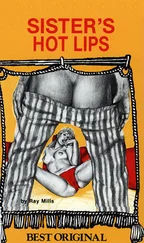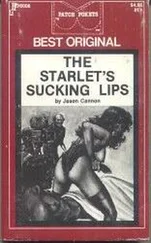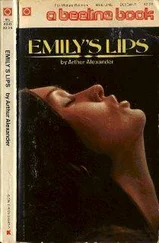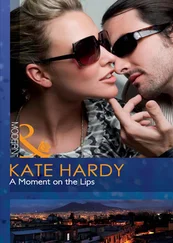I'd polished off my feta. Sophie had been talking so much she'd made little headway with the pate, but then she never did finish her food. I asked if she wanted it, and she shook her head and shovelled her leftovers on to my plate. Tomorrow , I thought, as I always did, I'll go on a diet tomorrow .
'I was furious ,' said Sophie. 'It took hours for me to calm down enough to go to bed, and even then I lay awake half the night fuming.'
'We are talking about Graham?' I asked. 'Graham Gilmore? '
'Who else?'
'But he's a feminist,' I said.
Sophie snorted. 'Trying to put his hand up my skirt isn't my idea of sisterhood.'
'You must have sent out the wrong messages,' I said, feeling unreasonably angry with her, but even angrier with Graham. He'd never made a pass at me, not once in all the years I'd known him, even back in the early days, when I knew he'd fancied me. How dared Sophie come along with her long blonde hair and girly ways and lead him astray? It was the same old story; even time I thought I had a friend, I made the mistake of introducing him to Sophie. That was one reason I'd taken up with Miles. To get even. Though all it had done was leave me more dissatisfied than ever with my life.
And then I simmered down, because I knew I wasn't being fair. 'Forget what I just said,' I told Sophie. 'What Graham did was awful . It was practically date-rape. Oh, I'll give him a telling-off for that.'
'I could have reported him to the police,' said Sophie.
I shook my head. 'You invited him in. He might have said you were leading him on.'
'But I wasn't.'
'Your word against his. Who's to know?'
'You think it was my fault?' said Sophie.
'Of course not,' I said, though it was difficult to suppress that part of me that thought it probably was. How could it not be? Everything was Sophie's fault.
Sophie sipped at her mineral water. 'You know what really pissed me off? The next morning he sent flowers. And a note, saying how sorry he was. He said he'd drunk too much. But I was sitting next to him at dinner, Clare, and he hardly touched a drop all evening. It wasn't the alcohol, it was him. He just went psycho on me.'
'Bloody men,' I said, shaking my head. 'They're all the same.'
And then I added, 'Dead or alive.'
I don't know why I said that. The words just popped into my head.
Graham was looking so glum I felt sorry for him.
'I'd never have guessed you had it in you,' I said, trying to cheer him up. In truth, I was looking at him in a different way now — as slightly less of a geek and slightly more of a stud. I realized with a shock I was teetering on the verge of finding him attractive. This was Graham — whose idea of an amusing evening's entertainment was sitting alone in his flat, constructing model aeroplanes from Airfix kits.
'Don't,' he said. 'I feel bad about it, really bad, the kind of bad you feel when you know you've done something completely out of character, and it makes you wonder what else you might be capable of. You know, maybe I could murder someone.'
'Come on . You put your hand on her thigh. That's hardly a capital offence.'
'It is on some university campuses in America,' said Graham.
'You've just tapped into your primitive urges,' I said. I fished around a little, trying to get him to direct some of those urges towards me, but he showed no sign of wanting to, and so we finished our drink and went our separate ways.
Whatever primitive urges I might once have had, meanwhile, were submerged beneath a sea of step-by-step cookery illustrations. It went like this: the art director provided me with a set of photographs which I would then convert into neat little line drawings. In some cases, the photographs were so badly lit or framed or posed that I had to use my imagination, but it wasn't what you'd call creative carte blanche ; I didn't spend my working hours conjuring up ceiling-high extravaganzas of whipped cream. I had to follow the rules; I knew from weary experience that even the tiniest of deviations from the formula would lead to nit-picking editorial consultations which would end with me having to start again from scratch. This was how I'd been making my living for the past two years, and this was probably how I was going to be making it for years to come. Each time we completed one book, a similar but slightly different one would pop up on the schedules, and the art director would ask if I wanted to continue, and of course the work was too well-paid for me to turn it down and clamber back on the freelance merry-go-round.
I couldn't complain, not when so many people were struggling to make ends meet, but it wasn't what I'd had in mind when I'd opted for illustration as a career. I'd envisioned a life of sitting around cafe tables, dashing off witty little caricatures in between sips of red wine, or welcoming fashion and media VIPs to private views of my latest etchings. The reality was much more prosaic, but there was rent to pay. There was always rent to pay.
My publishers and I had already disposed of French and Italian cuisine, and now we were steadily working our way through cakes and puddings. From a dietary point of view, this was a disaster; daily toil over the contours and texture of plum duff or rhubarb crumble was giving me an insatiable appetite for stodge. It wasn't as though I was obsessed with weight, but it was galling to realize I was probably the only one of Sophie's female friends with a dress size in double figures.
Ironically, it was the sort of finickety work Sophie would have adored — all those sprinklings of Parmesan and powderings of icing sugar. But it wouldn't have been prestigious enough for her. It went nowhere, did nothing, and impressed absolutely no one.
It was some weeks before I saw Sophie again. She kept cancelling our lunches and going all coy on me if I pressed her for reasons why. This was how she behaved when there was a new man in her life, but when I bumped into Carolyn or Charlotte or Isabella in the market, or phoned Miles to wish him a happy birthday, it was obvious they knew even less than I did about the state of Sophie's love life.
Then, finally, I ran into her accidentally-on-purpose. I'd spent a lunch time swallowing lager in the Saddleback Arms with Dirk and Lemmy, which had left me feeling bold enough to stroll past number nine on the way to the tube. My timing was spot-on. As I was approaching the house, I saw Sophie clambering out of a black cab, so laden with Hyperbole carrier bags that she had to deposit some of them on the pavement so she could rummage in her purse.
She saw me coming and said without surprise, 'Clare, sweetie, give me a hand, will you,' as though we'd just spent an entire morning in each other's company. I obediently picked up the nearest bag, catching a glimpse of exquisite folds of beige silk interleaved with whisper-thin layers of white tissue-paper. A subtle, agreeable scent wafted up to my nostrils. There was a whole atmosphere in there, and I wanted to bury my head in it.
'I see you're branching out into beige,' I said, picking up another two bags and threading them onto my arm with the first.
Sophie failed to spot the irony in my tone. 'It's not beige,' she said. 'It's ecru .'
Sophie was the only person I'd ever known who could wear beige successfully, though she normally referred to it as ecru or taupe or oatmeal or stone or cream or mushroom or off-white or Chinese brown or camel , whatever it was being called that season. She even wore beige lipstick and nail polish. On her it looked classy and French. On me it looked drab, as though I were too chicken to wear anything brighter.
Читать дальше
